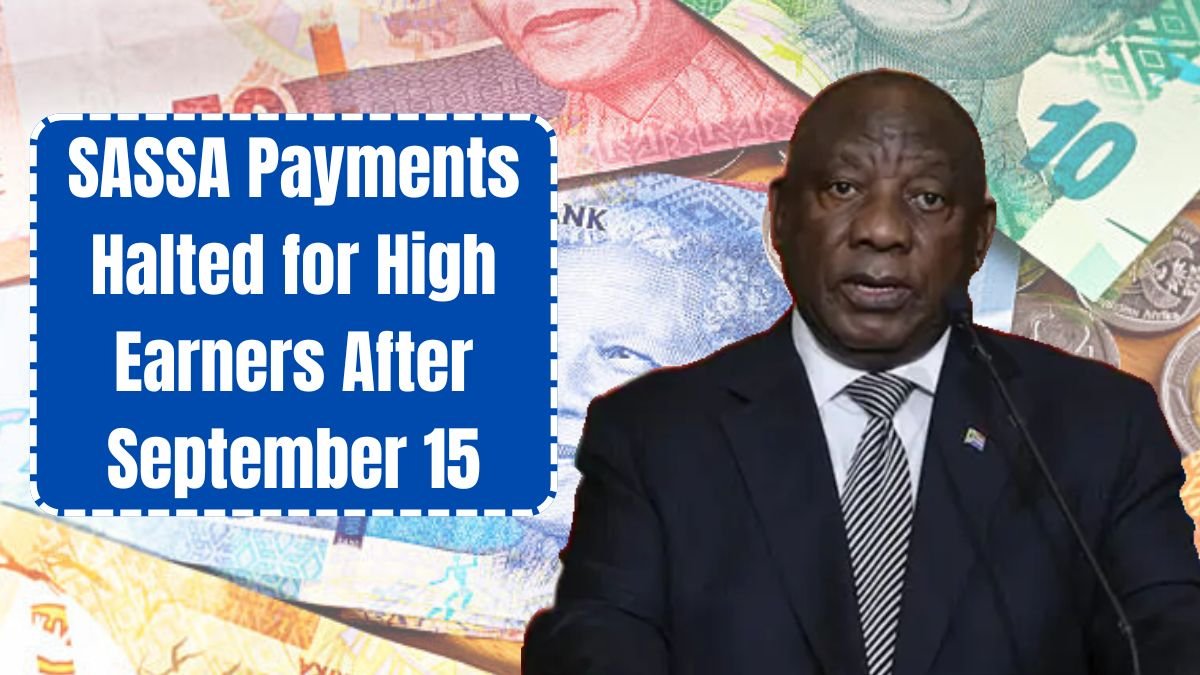Such new policy will forever affect hundreds of thousands of grant recipients. However, from the date of 15 September 2025 onwards, no social grant shall be payable to any recipient if such a recipient earns more than R8 070 per month. The threshold is to facilitate cash assistance to those that are genuinely in need. Nevertheless, such a threshold has caused a lot of anxiety among beneficiaries when faced with inflation-indexed costs. This article discusses the new law, its impact on recipients, and the remedies to be applied for staying eligible.
What Is the R8,070 Income Threshold?
Starting from 15 September 2025, those that earn more than R8,070 per month will no longer be considered worthy of any social grant from SASSA, while the maximum income level for a household shall be R16,140. This threshold considers all sources of income-salary, freelance, pension, investment, etc. It is therefore recognized in relation to the payments cycle of SASSA for one month, so as to ensure that no grant recipient that has any form of income should be receiving a grant from SASSA that is meant for lowest earners. If the recipient earns above the threshold, he or she would henceforth be denied the social grant payment from SASSA already and would basically be required to report such income.
Affecting Which Grants?
The means income test affects the Older Persons Grant (R2,310-R2,330/month), Disability Grant (R2,315/month), and War Veterans Grant (R2,330/month). The Child Support Grant (R510) and Care Dependency Grant (R2,310/month) could also be affected if the caregiver’s income is greater than the limit. However, the income limit for the Social Relief of Distress (SRD) Grant (R370/month) is set at R595/month and to qualify one has to be a bit more discreet. Recipients should be able to account for all sources of their income, including part-time earnings or remuneration, to qualify below the set limit of R8,070.
Why Is This Change Happening?
According to SASSA, this is done to keep this grant system afloat during economic challenges in SA. There exists a feeling that with an agency now servicing in excess of 19 million beneficiaries, those grants should principally assist the very poor and not allow double dipping for those with more secured incomes. The means test justifies the threshold of R8,070 based on household incomes and cost of living as well as to make sure that few resources are dispersed evenly among the deserving. Critics claim that the policy might have been designed to exclude the highly susceptible families that are barely inside the limits, especially in high-cost urban areas.
What Should Beneficiaries Do?
Immediate action should be taken by the beneficiaries to prepare for disruptions to payment:
- Check every source of income whether it amounts to or is less than R8,070 per month.
- Update finance details with SASSA through the usual channels, either via the website itself (https://www.sassa.gov.za) or going physically to any SASSA Regional Offices.
- If summoned, attend all hearings relevant to case audits. If one goes over the threshold but subsequently drops under it, then it could be applied for again.
- Transparency would always have to be maintained: failure to declare income will result in suspension or disqualification, coupled with a demand to pay back the benefit.
Beneficiaries will be given backing from SASSA should they require further assistance in understanding their positioning.
Long-Term Implications
The income ceiling was fixed at R8,070 to set this as a test for SASSA in directing social assistance well, and it may set difficulties for those around the limit. With raising prices of goods and services, some households without grants will be in real trouble. Beneficiaries should plan their finances and seek other support systems in anticipation of any announcements from SASSA for such changes.
also read : SASSA Double Grant September 2025: Who Qualifies for Two Payments
